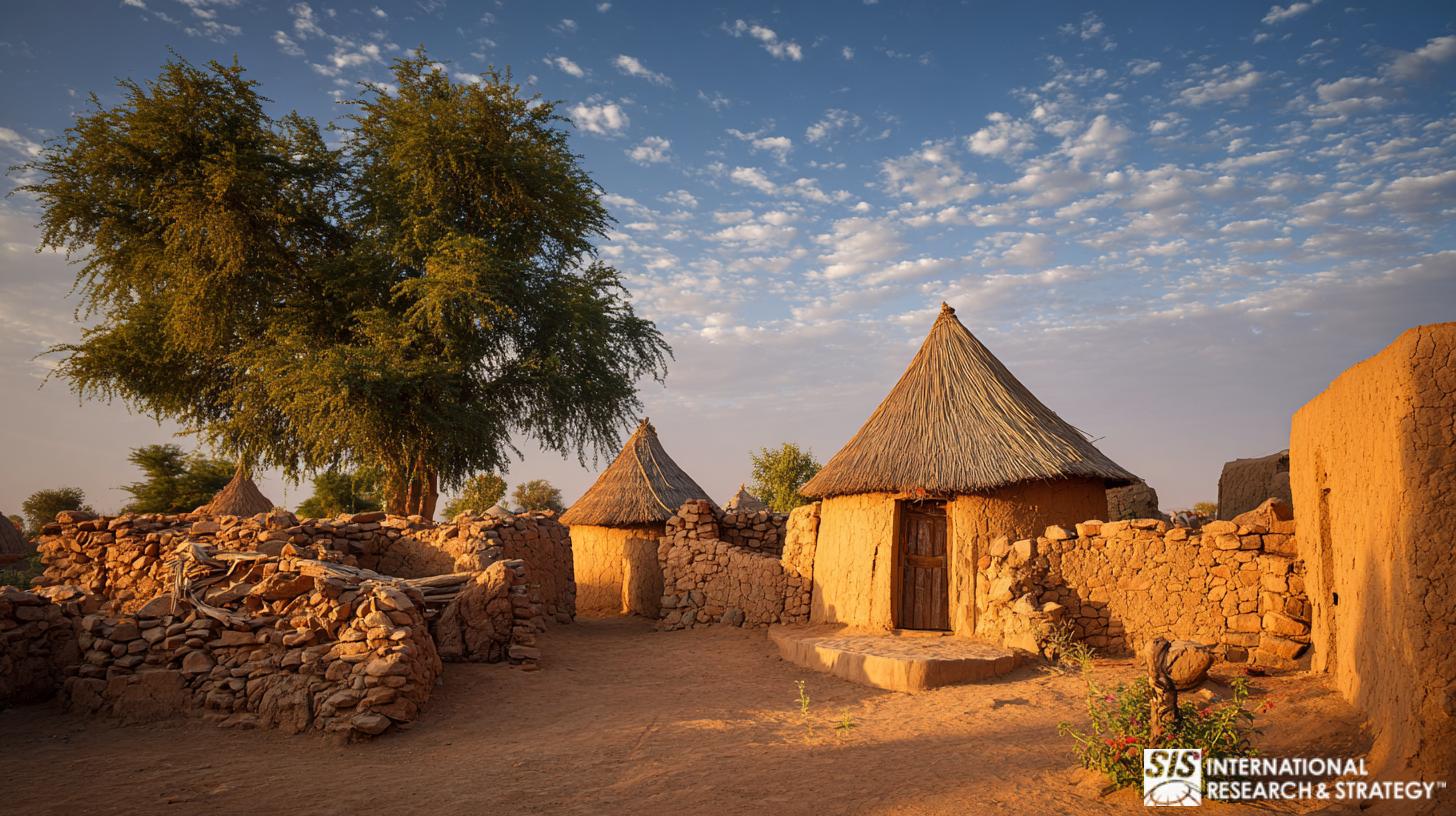Market Research in Niger

Niger (official name: the Republic of Niger) is a landlocked West African country. As a matter of fact, it takes its name from the Niger River, which runs through its southwestern territory. Its capital is Niamey. Algeria is on its northwest border, Libya on its northeast, Chad on its east, Nigeria and Benin to the south, and Burkina Faso and Mali are on the west boundary.
The official language is French. In addition, the commonest language used is Hausa, followed by Songhai, Fula, Tamashek, and Kanuri. People also speak Arabic and Teda.
A majority claim Sunni Islam as their religion. Christianity remains a religion of the towns, particularly of Niamey. By the same token, some of the rural areas continue to embrace the traditional animist religions of the Black Africans.
Rainfall determines Niger’s ability to remain self-sufficient in food and livestock. What’s more, the country suffers from droughts, which increase the need to import and receive food aid. Still, the government has invested in irrigation projects and an “off-season growing program.” This program consists of small-scale production and irrigation operations to circumvent the droughts.
The three main objectives of Niger are:
- The maintenance of national unity.
- The elevation of the standard of living.
- Economic independence.
Key Industries in Niger
Agriculture, mining, and exportation are critical in Niger.
Agriculture and agricultural products make up the largest sector of Niger’s economy, employing the most persons and making up the highest percentage of GNP. Major crops include millet, sorghum, and cassava, coupled with sugar cane and rice, all of which grow in the Niger River valley.
Livestock and fish are also significant exports, and animal farmers raise cattle, sheep, and goats for meat, milk, and hides. Additionally, artisans use the skins of ostriches, crocodiles, and snakes for handicrafts. The primary market for these handicrafts is Europe.
Niger is among the world’s leading producers of uranium. Most of the uranium deposits are in central Niger, and production fluctuates according to market demands.
Investors have established several manufacturing industries, most of which are in Niamey. These industries produce chemicals, food products, textiles, farm equipment, and metal furniture. The petroleum refinery is in another city, Zinder.
The private sector consists partly of many small enterprises. It also consists of enterprises belonging to large French or international companies.
Buurten
Niger has four principal towns: Niamey, Zinder, Maradi, Tahoua. Niamey, the capital of Niger, is along the Niger River in the southwest corner of the republic. The indigenous people founded Niamey as an agricultural village. It became the capital in 1926 and grew after World War II.
Niamey has a cosmopolitan character, varying between European and African rural aesthetics. There is an international airport. Roads also link Niamey with Atlantic ports in Benin and Nigeria.
Today, traders, merchants, officials, and artisans occupy Niamey. They come from Niger as well as Nigeria, Benin, and Togo. Most people in Niamey work in the service sector.
About one-fifth of the population lives in towns, but many of the rural folk are nomads. Niger has some 10,000 villages, of which almost half have only a few hundred inhabitants. There are no villages in the desert zone.
Trends in Niger
The number of internet users in Niger increased in 2021.
Economic growth fell owing to the COVID-19 pandemic. Niger has also experienced violent terrorist attacks in recent years. But, economists project an economic turnaround. The Nigerian border has reopened, and significant investment projects have resumed. Supply chains have also gone back to normal.
Voordelen en sterke punten van de markt
As a developing country with many raw resources, Niger has investment potential. It has immense land areas fit for intensive agro-business. These lands are also ideal for pastoral business.
Niger is a leading producer of uranium. Its soil is rich in mineral deposits such as uranium, oil and gas, gold, iron, and phosphates. It also supplies coal, limestone, gypsum, and cassiterite.
Niger has many trading partners. The primary ones include Nigeria, France, and China.
Consumer Base in Niger
Niger has a low adult literacy rate: one of the lowest in western Africa. Different agencies have been conducting literacy programs in the five principal African languages.
Education in Niger is free, but only a tiny proportion of children attend school.
Niger has high birth and population growth rates: among the highest globally. The country’s death rate is among the highest in Africa. Life expectancy is about 58 years for men and 61 years for women. Niger’s population, on the whole, is young. Almost one-half of the people are under age 15, and about one-fourth is between the ages of 15 and 29 years.
Why Grow Your Business in the Nigerien Market?
Tapping into the raw potential of the country can prove fruitful. One way is by investing in the expansion and development of Niger’s industries.
Niger promotes economic relationships between African countries. Besides its membership in the African Union, Niger is also a member of regional groups contributing to its development. They include Conseil de L’Enfant and the Economic Community of West African States. Niger also has an affiliation with the African Continental Free Trade Area. This last group assists in developing the country, infrastructure, and economy.
About Market Research in Niger
Surveys to approach a wide range of Nigeriens can help keep a pulse on current trends and staples. Well-placed focus groups and market research can help draw out how best to invest in Niger.
Kwalitatief, Kwantitatief, En Strategisch onderzoek is also essential. It helps potential investors to decide on better, more efficient infrastructure and systems. It also shows them which products are more suited to Niger, allowing for greater returns.

